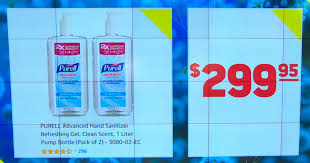The Risk of “Price Gouging” in the New COVID-19 Pandemic Marketplace

The COVID-19 pandemic era has transformed the economy with a new emphasis on health and safety related products (e.g., sanitizers, toilet paper, designated medical supplies). Our economy has suffered severe disruptions to demand and supply of goods and services. In this new economy, businesses face extraordinary risks of federal and state prosecution for price gouging.
The federal price gouging law applies narrowly to critical items of medical and health supplies designated by Health and Human Services Federal price gouging. There is no general federal price gouging statute.
State law is a different matter. In fact, states are actively monitoring and prosecuting price gouging cases. States are focusing on pricing of medical equipment but have extended monitoring activities to include food and other essential supplies.
Before the pandemic, companies had wide discretion to price their products at whatever level they selected, subject to market forces. A unilateral decision to raise a product’s price was rarely, if ever, subject to scrutiny (except when a company possesses market power).

Given that almost every state has declared an emergency, states are exercising their power to constrain companies from large price increases for certain products. The problem with this enforcement scheme is the definition of “price gouging.”
Thirty-six states have price gouging laws, and several states are considering enacting new laws on this issue. State price-gouging laws vary in defining price gouging. Most state laws define price gouging in terms of “excessively high” price for products and services during a national or state emergency, such as tornadoes, hurricanes, fires and pandemics. Some states prohibit “unconscionable” price increases during the declared emergency. Other states prosecute excessive pricing based on general fair trade statutes.
To define excessive prices, state laws focus on the company’s price for the product prior to the emergency declaration. California and New York both rely on the product price “immediately prior” to the emergency declaration. Florida determines the “average price” in the 30-day prior to he emergency declaration. Pennsylvania examines the average price in the seven days prior to the emergency declaration.
In California and New Jersey, a price increase of greater than 10 percent is presumed unlawful. In Pennsylvania, a price increase of 20 percent or more is prima facie evidence of price gouging.

State prosecutors, like federal prosecutors, are focusing on medical supplies such as personal protective equipment, medications, medical devices, masks and gloves. State pricing laws, however, apply more broadly to include food and other essential items. New Jersey law covers any “merchandise which is consumed or used as a direct result of an emergency or which is consumed or use to preserve, protect, or sustain the life, health, safety or comfort of persons or their property. Vermont limits price gouging to petroleum products. Most state laws cover pricing at wholesale or distribution level as well.
State price gouging law impose significant civil and criminal penalties, up to one-year imprisonment and significant civil penalties. For example, in California, price gougers face a maximum of one-year imprisonment; and a $10,000 fine.
To avoid a price gouging prosecution, companies have to document and justify pricing decisions. If a price increase is based on an increase in underlying costs, the specific cost factor should be documented and explained. If your company sells essential products (e.g. hand sanitizers), you should expect law enforcement and consumer agency inquiries concerning pricing. Consumer complaints are fueling many of these inquiries. State prosecutors have established consumer reporting lines to handle the increase in complaints.














